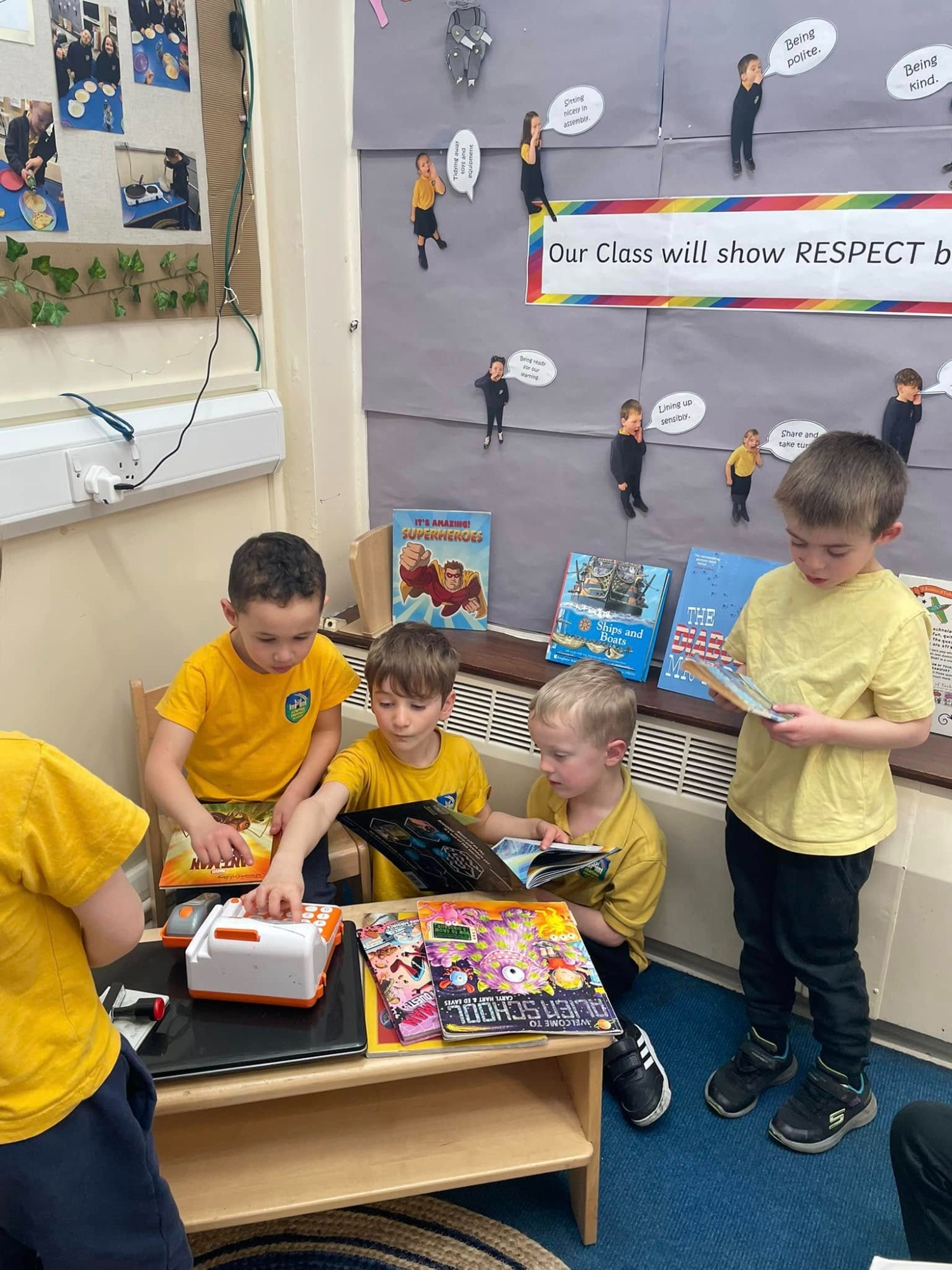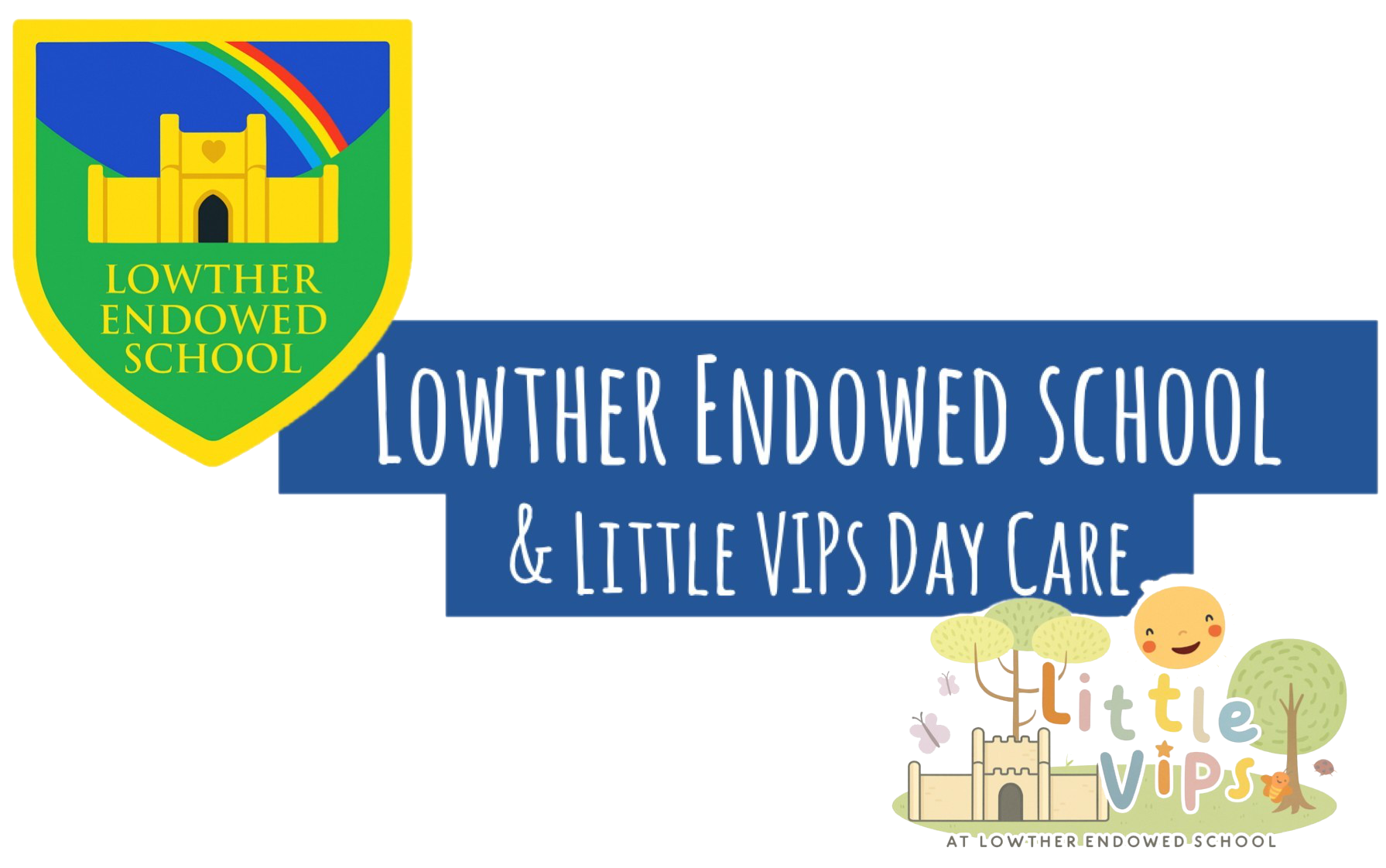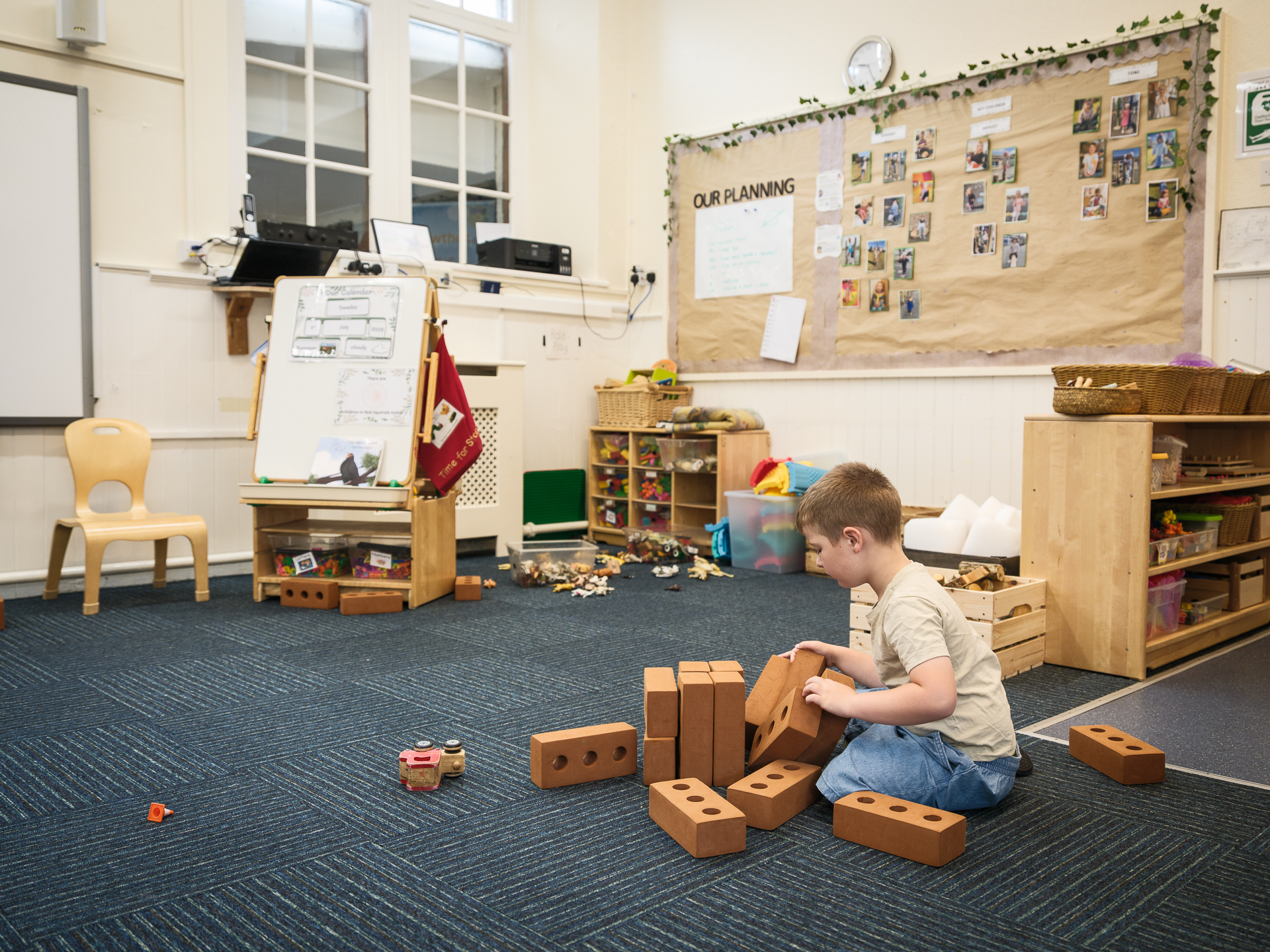English

English as a subject is of course at the heart of everything we learn. We need to be able to read in order to be able to access every subject. Our curriculum for English reflects the importance of spoken language in pupils’ development across the whole curriculum – cognitively, socially and linguistically. The quality and variety of language that the children hear and speak are vital for developing their vocabulary and grammar and their understanding for reading and writing. A wide and exciting vocabulary is the key to unlocking children's potential in English.
Speaking and Listening
We want our children to become confident in their communication skills. We encourage them to communicate clearly, describe accurately and to ask questions. We provide lots of opportunities through drama, assemblies, presentation and discussion. It is important to encourage children to develop their listening skills and to enjoy listening in a range of different situations. We ask them to follow instructions, convey messages and follow ideas raised in group discussion with understanding and interest. Speaking and listening encompasses all areas of our curriculum.
Reading
'Reading is a strength of the school. The school has established a successful and effective phonics programme. Staff deliver this programme with consistency and strong subject knowledge. The school carefully check's pupil progress through the phonics programme. It puts extra support in place when necessary to suport pupils who struggle with reading. This allows most pupils, including those with SEND, to become fluent and accurate readers by the time that they leave Key Stage 1'.
Ofsted April 2024
 Children's reading journey starts the moment they arrive at school. We now use Essential Letters and Sounds as our phonics scheme and it begins in week 2 of reception. The scheme is colourful, repetitive and builds day in day out to allow all children to grasp the understand of our language. Alongside the scheme, we ensure we share a wide variety of exciting stories, texts and poems in every class to demonstrate and excite children in the power of reading. When children are immersed in stories such as Bog Baby, Traction Man, The Iron Man, Clockwork (to name just a few), they not only gain a love of books but want to become writers too.
Children's reading journey starts the moment they arrive at school. We now use Essential Letters and Sounds as our phonics scheme and it begins in week 2 of reception. The scheme is colourful, repetitive and builds day in day out to allow all children to grasp the understand of our language. Alongside the scheme, we ensure we share a wide variety of exciting stories, texts and poems in every class to demonstrate and excite children in the power of reading. When children are immersed in stories such as Bog Baby, Traction Man, The Iron Man, Clockwork (to name just a few), they not only gain a love of books but want to become writers too.
Right across the school, in reading, our teaching focuses on developing pupils’ competence in both word recognition and comprehension. Currently, one of the excellent resources we use is Reading Ninja, which helps us develop children's comprehension skills, alongside their own reading for pleasure. In addition, a key priority this year is to develop pupils’ pace, fluency and accuracy in their own reading so that it may improve their reading comprehension skills. We have a range of parent/grandparent and governor volunteers who regularly come into school to hear children read. Children are guided towards appropriate reading books that will help develop their reading skills, but they are also encouraged to pick books for their own enjoyment and pleasure - which they may read with a buddy/parent too. We love to share books and we particularly enjoy it when our older pupils support the younger pupils with reading.
Reading for Pleasure has been a focus for the past couple of years. We developed our library area to match this focus, alongside the ideas of the children. Our library is packed with a huge variety of books - many chosen by the children themselves. Termly boxes are loaned to us from the School Library service and we LOVE it when the Library van comes to visit, as the children get to climb onboard, pick books for the term and hear stories too. We enjoy focusing on celebrating reading on days such as World Book Day. This year, the whole school focused on an excellent book entitled "The Day the Crayons Quit". Also see our Reading section and our Promoting the Love of Reading page at Promoting the love of Reading | Lowther Endowed School (secure-primarysite.net).
Writing
In writing, teaching focuses on developing children’s competence in both transcription (spelling and handwriting) and composition (articulating ideas and structuring them in speech and writing). Children are immersed in high quality genres and are encouraged and supported to extract key features. We use Power of Reading to link our class texts with high quality writing experiences. In the process of becoming independent writers, pupils are given clear purposes and audiences for their work. The Talk4Writing programme is in place throughout school and pupils are encouraged to say, rehearse what they want to write, before committing their ideas to paper. The key writing features are taught and modelled by the teacher and additional scaffolding is given when needed. Pupils are given the opportunity to complete a piece of extended writing regularly which allows them to further embed and develop their writing skills. Each week opportunities are in place for pupils to edit and draft their own writing. This will either be in response to the teacher’s marking or their own re-reading.
Grammar, punctuation and spelling are taught both discretely and within the context of reading and writing, so that learnt skills are applied to good effect. The teaching of phonics continues into KS2 as necessary, children are assessed and work in differentiated small groups.
The school will continue to set high expectations for all pupils through challenging and motivating activities. Children’s progress is assessed rigorously and frequently against ambitious targets.
Intent
At Lowther Endowed School, we believe that a high-quality English curriculum is central to our pupils’ success across the entire curriculum. Our intent is to ensure that all children:
-
Develop a lifelong love of reading, enabling them to access and enjoy a rich and varied literary heritage.
-
Become confident, fluent readers with strong comprehension skills.
-
Express themselves clearly and creatively through spoken and written language, for a range of purposes and audiences.
-
Acquire a secure understanding of spelling, grammar, punctuation and vocabulary, enabling them to write with confidence and accuracy.
-
Build the oracy skills needed to communicate effectively, reason, persuade, and listen actively.
-
Are empowered through language, gaining the literacy skills they need for learning, life, and future success.
We are committed to developing children's cultural capital through exposure to a wide range of texts, authors, and genres, including voices and experiences from diverse backgrounds.
Implementation
-
Our English curriculum is carefully planned and sequenced to ensure clear progression in reading, writing, grammar, spelling, and speaking and listening skills across all year groups.
-
Phonics is taught daily in EYFS and KS1 through a systematic synthetic phonics programme, ensuring children develop strong early reading skills.
-
Reading is prioritised across the school. Children read daily and access high-quality texts through guided reading, class novels, and cross-curricular reading opportunities.
-
A rich reading spine exposes children to a variety of classic, contemporary, and diverse authors and genres.
-
Writing is taught through a text-based approach, enabling pupils to explore rich language models before applying them in their own writing. Writing units include a focus on planning, drafting, editing, and publishing.
-
Grammar, punctuation, and spelling are taught both discretely and in context, with regular opportunities to revisit and apply learning.
-
Vocabulary development is embedded across all subjects, with a focus on expanding pupils’ word knowledge and confidence in using new language.
-
Speaking and listening skills are developed through drama, debate, presentations, performances, and structured discussion.
-
Targeted support and interventions are provided for pupils who need additional help with reading and writing.
Impact
As a result of our English curriculum:
-
Pupils develop as confident, fluent readers who read for pleasure and with purpose.
-
Children leave each key stage able to write clearly, accurately, and creatively for a range of audiences and purposes.
-
Pupils can articulate their ideas confidently, listen respectfully, and engage in meaningful discussion.
-
Children demonstrate strong understanding and use of vocabulary, enabling them to access learning across the wider curriculum.
-
Those who struggle with reading or writing receive timely support, ensuring that gaps are closed and all pupils make progress.
-
By the end of their time at Lowther, pupils are well-prepared for the next stage of their education with the literacy skills needed to thrive.
Cultural Capital in English
At Lowther Endowed School, our English curriculum plays a vital role in developing pupils’ cultural capital by giving them the language, knowledge, and critical thinking skills needed to access and engage with the wider world.
Through a rich and diverse range of texts—including stories, poems, plays, and non-fiction from various cultures, time periods, and perspectives—our pupils:
-
Gain insight into different lives, histories, and traditions, helping them develop empathy and a broader understanding of society.
-
Build a strong command of spoken and written language to confidently express their ideas, opinions, and emotions.
-
Develop vocabulary and oracy skills that enable them to participate fully in discussions, debates, and collaborative learning.
-
Learn to interpret and analyse texts, fostering curiosity and an ability to think critically about language and meaning.
-
Experience the power of storytelling and communication as tools for connection, creativity, and cultural exchange.
-
Encounter a variety of genres and media, preparing them for the diverse ways language is used in education, work, and everyday life.
-
Explore how language shapes identity and culture, helping them appreciate the richness of their own heritage and others’.
By embedding cultural awareness and language skills into every aspect of English learning, we equip children with the confidence, knowledge, and curiosity to thrive academically, socially, and culturally throughout their lives.
What does English looks like in EYFS .....
In the Early Years Foundation Stage, English is developed through rich, immersive experiences that support children’s communication, language, and literacy skills as fundamental building blocks for future learning.
Our approach to English in EYFS includes:
-
Listening and attention: Children are encouraged to listen carefully to stories, songs, rhymes, and instructions, developing focus and understanding.
-
Speaking and understanding: We provide many opportunities for children to express themselves through conversation, role-play, and group discussions, building vocabulary and confidence.
-
Reading: Children explore a wide range of books—fiction and non-fiction—supported by engaging storytelling and sharing sessions. They begin to recognise sounds, letters, and words through daily phonics activities.
-
Writing: Early mark-making and emergent writing are encouraged through fun, purposeful activities such as drawing, painting, making lists, and writing simple letters or captions.
-
Phonics: We follow a systematic, age-appropriate phonics programme that introduces children to letter sounds and blends, helping them begin to decode and spell simple words.
-
Storytelling and imagination: Children are immersed in stories and encouraged to retell, invent, and act out narratives, fostering creativity and a love of language.
Our EYFS English curriculum is play-based and child-centred, integrating communication and literacy development naturally throughout all areas of learning. By the end of Reception, children will have built a strong foundation in speaking, listening, reading, and writing that prepares them for the more formal English curriculum in Year 1.


